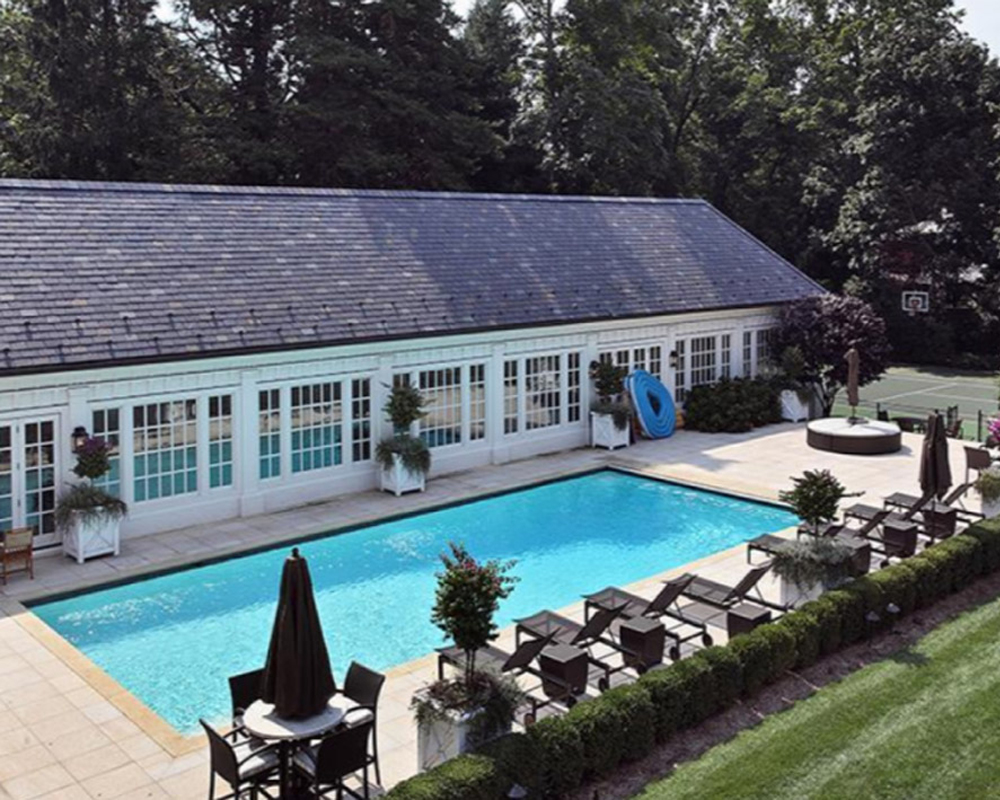A Harrison homeowner and a Julia B. Fee Sotheby”™s real estate agent had no duty to disclose recurring mold when they sold a house for $6.2 million, an appellate court has ruled, because of the doctrine of caveat emptor, or buyer beware.

Adam and Hillary Comora, who spent $1.1 million to remediate mold and fix damages, argued that the seller, Martin Franklin, and his sister, real estate agent Caroline Freidfertig, had committed fraud by actively concealing the condition.
But disclaimers in the contract of sale preclude a claim of fraud, a four-judge panel in the Second Appellate Division ruled on April 10, and the Comoras had stated in the contract that they were “fully aware of the physical condition and state of repair of the premises.”
The Comoras bought the house at 62 Rye Ridge Road in 2013, when they were searching for a place that would be suitable for their three sons, ages 4 to 11.
The 8,900-square-foot mansion had several attractive features: an all-weather tennis and basketball court, large backyard, indoor and outdoor pools, a game room and a playroom. A marketing brochure touted the 2,400-square-foot pool house, built in 2008, with an Infinity Edgeless 25-meter, 2-lane swimming pool, hot tub, sauna, handmade tiles and hanging lantern chandeliers.
The contract included a standard clause stating that the buyers would accept the premises “as is.” Franklin declined to provide a property condition disclosure statement and gave the Comoras a $500 credit instead.
A home inspection company hired by the Comoras reported “no visual evidence or musty odors associated with fungi,” “no elevated moisture levels” and “no visible or apparent conditions that would lead to mold growth” in the pool house or main house.
The Comoras ordered a title report, including a search for municipal records of any permits for work done on the house and got evidence only of the original pool house project.
During a walk-through with Freidfertig before the closing, they saw no mold.
They closed on Nov. 27, 2013, and paid the balance of the $6.2 million purchase price. Julia B. Fee Sotheby”™s received a $248,000 commission.
The Comoras went to their new home and turned on the heat for the indoor swimming pool, according to court records, to prepare it for a “welcome dip.” Several hours later, a humidity alarm sounded, indicating excessive moisture in the pool house.
Adam Comora called Franklin, according to his legal complaint, and was told “to call Belfor.”
This was the first indication of mold issues, according to the lawsuit the Comoras filed in 2015.

Franklin had hired Belfor Property Restoration of North White Plains, months before the sale, to remove visible mold and repair mold-damaged areas in the pool house.
Even after the repairs, the complaint states, Franklin and Freidfertig had made numerous emergency calls to Belfor when the pool alarm went off. Bohlander Home Inspection of  Katonah had advised Franklin that mold would continue to grow if the humidity was kept above 60 percent, and recommended draining the pool.
An engineer hired by the Comoras, after they moved in, found standing water and moisture flowing down the wood rafters of the pool house attic. Design flaws and poor workmanship, the engineer reported, were the underlying cause of the mold.
No municipal permit had been taken out for the remediation work.
The Comoras had asked Freidfertig during the walk-through about the costs of maintaining the swimming pool and the services her brother had used for the pool area. Freidfertig, according to court records, assured the Comoras that the pool needed only routine maintenance. She did not mention the humidity problem or mold and did not identify Belfor as a service provider.
Had they known about the mold issue, the Comoras stated in their complaint, they would have demanded a substantial price reduction. When they asked Franklin to reimburse them for their repairs, he cited the “as is” clause of the contract.
The Comoras claimed that Franklin, Freidfertig and Julia B. Fee Sotheby”™s had intentionally thwarted their attempts to investigate the property.
They sued for $1.2 million in damages and $3 million in punitive damages in Westchester Supreme Court, charging fraud.
Under New York law and the doctrine of caveat emptor, the seller and the seller”™s agent have no duty to disclose any information, unless they actively conceal something.
The defendants cited the doctrine and asked the court to dismiss the case.
They argued that they had never misrepresented the property, mold remediation does not require a building permit, the Comoras were given “unfettered access” to the property and had hired a professional inspector, and the conditions causing the humidity were open and obvious.
Mere silence does not amount to concealment, Supreme Court Justice Mary H. Smith stated in a 2016 decision, and caveat emptor imposes a duty on the buyer to satisfy himself as to the quality of the bargain.
But if a buyer has no way of knowing of a defect, the seller may have a duty to disclose the information. The duty arises, she said, when the “information is peculiarly within defendants”™ knowledge” and the same information could not have been discovered by plaintiffs.
Smith ruled that the Comoras had sufficiently stated several causes of action for fraud. She dismissed the demand for $3 million in punitive damages, because the alleged fraud was not aimed at the general public or serious enough to imply a criminal indifference to civil obligations.
The appellate panel reversed Smith”™s decision, ruling that the Comoras had agreed to the contract based on their own inspection and investigation and not upon any representations by Franklin or Freidfertig.




















